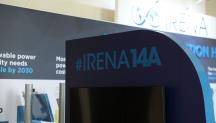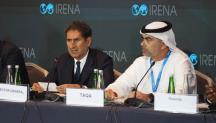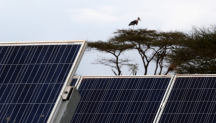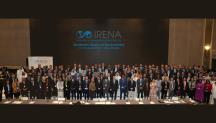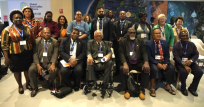
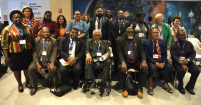
Parliamentarians at COP28 Commit to Leverage Their Unique Position for Climate Action
Newsletter
As 2023 marks the halfway point for the implementation of key sustainable development frameworks, this year offers an opportunity to assess progress on the Paris Agreement and the Sendai Framework, which aims to protect development gains from the risk of disaster and scale up climate finance.
The Framework calls for relevant regional bodies and mechanisms for parliamentarians, as appropriate, to continue supporting and advocating disaster risk reduction and the strengthening of national legal frameworks. Parliaments are well placed to compel and encourage the executive to act with urgency towards averting climate emergency and to instil confidence in the Paris Agreement and Sendai Framework, respectively.
Against that backdrop, Climate Vulnerable Forums Global Parliamentary Group (CVF GPG), the International Renewable Energy Agency (IRENA), the United Nations Office for Disaster Risk Reduction (UNDRR) and the Global Renewables Congress (GRC) co-organised the Parliamentary Accountability Summit during the 28th United Nations Climate Change Conference (COP28).
This summit aimed at exploring the critical role of parliamentarians in driving increased accountability for climate action, focusing on commitments to limit temperature increases and on implementation of the Sendai Framework for Disaster Risk Reduction. The summit coincides with the conclusion of the Global Stocktake of the Paris Agreement, offering a crucial moment for parliamentarians to assess collective progress toward the long-term temperature goals.
From CVF GPG, Hon. Emmanuel Marfo, Member of Parliament (MP), Ghana, said, “The Parliamentary Accountability Summit underscores our collective commitment to unveiling the pivotal role of parliamentarians in advancing heightened climate change accountability. In the pursuit of a sustainable future, we come together to explore the potential of parliamentary engagement and its profound impact on shaping decisions and policies at both national and international levels.”
The summit addressed a growing concern over the gap between commitments made and actions taken to realise the 1.5°C goal of the Paris Agreement. As custodians of public parliaments play an indispensable role in ensuring accountability for climate and disaster risk reduction efforts at both national and international levels.
The call for parliaments to leverage their unique position was voiced by Ms. Bärbel Höhn, the Chair of GRC: “MPs play a central role in this because they are the bridge between the people on the ground and the national and international level, where the necessary decisions must be made to help the people.”
Legislators also play a crucial role in shaping financial frameworks that encourage collaboration between public and private sectors, ensuring sustainable climate adaptation. The insufficient mobilisation of finance for adaptation efforts at the moment poses a significant barrier to addressing the impacts of climate change, particularly in vulnerable regions.
This has been highlighted by Ms. Mami Mizutori, Special Representative of the Secretary-General for Disaster Risk Reduction and Head of UNDRR, who said, “In place of simply funding disaster response capacities, you can allocate more funding to prevention, adaptation and resilience building. You can incentivise risk awareness and risk disclosure in plans and investments. And you can help address gender and structural inequalities that drive up vulnerabilities. But I would like to raise our ambitions even higher, and aim for a world, with not just fewer climate disasters, but Zero Climate Disasters. That is our rallying call for COP, and UNDRR stands ready with our parliamentary partners to support.”
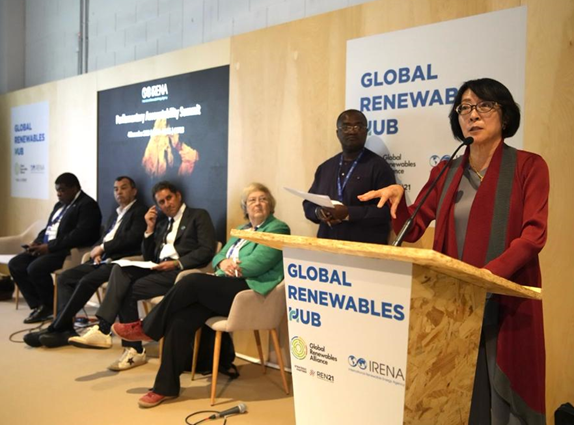
The summit concluded with an announced commitment from the MPs who were present. The Outcome Statement expresses the MP’s commitment to align actions with the imperative goals of limiting global warming to 1.5°C, to implement the Sendai Framework and enhance collaboration to advance climate mitigation and adaptation efforts. Most importantly, the MPs agreed to utilise parliamentary tools and oversight to monitor and assess the implementation of climate policies, ensuring transparency and accountability at both national and international levels.
